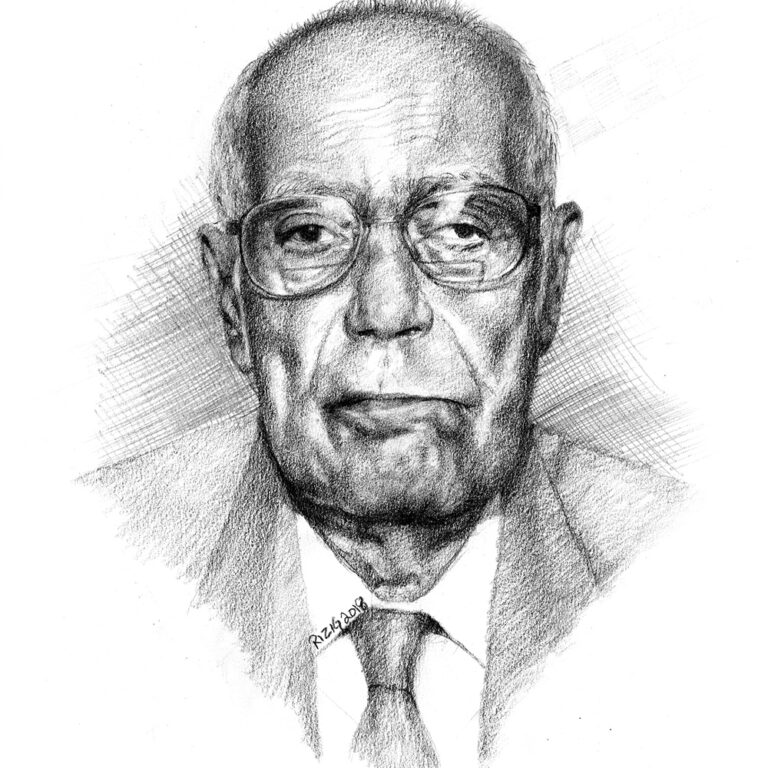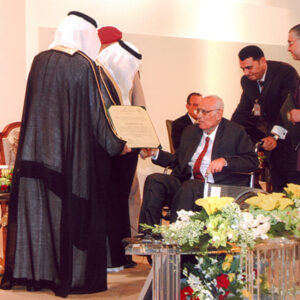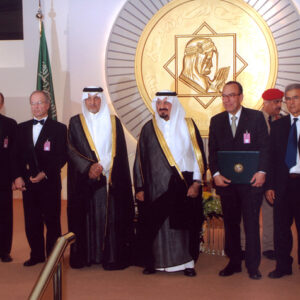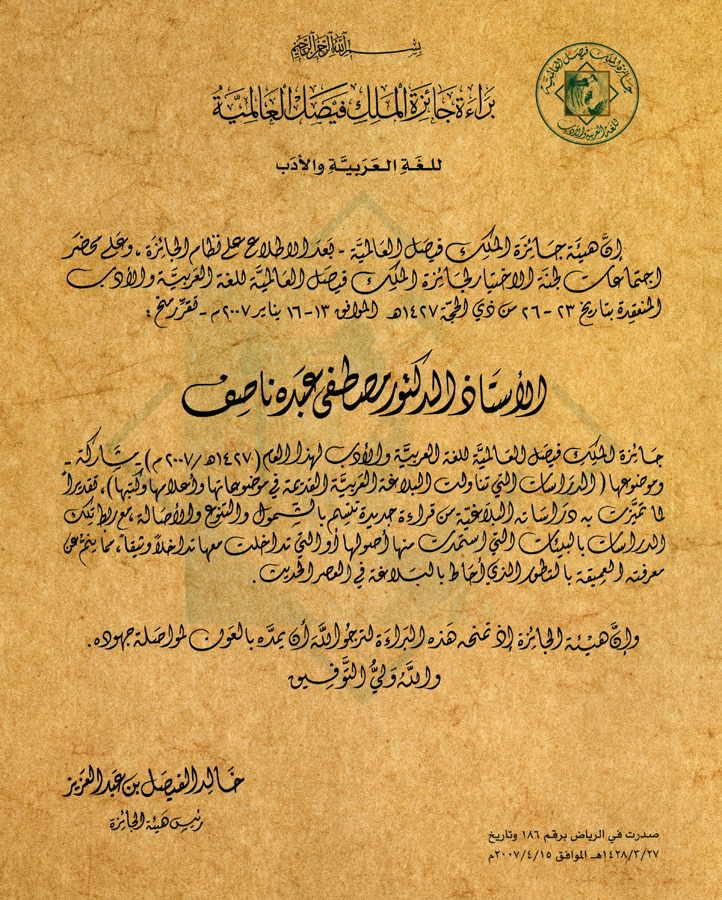

Professor Mustafa A. Nasif
King Faisal Prize in Arabic Language and Literature 2007 Laureate
Topic: "Studies on Ancient Arabic Rhetoric"
The care of language and literature cannot be separated from that of science

Mustafa Nasif joined Ain Shams University as a lecturer in 1952 and became a full professor in 1966. He taught ancient Arabic rhetoric and literature for several decades and chaired the Department of Arabic Language more than once. Upon his retirement in 1980, he was appointed Professor Emeritus of Arabic. He was known in academic circles throughout the Arab world, having taught in many Arab Universities and the American University in Cairo. In the 1950’s, he was invited to lecture on his New Horizons in Metaphors at London University and The Theory of Meaning in Modern Arabic Literary Criticism at Harvard.
Professor Nasif’s scholastic contributions had profoundly impacted the current understanding and interpretation of classical Arabic rhetoric. He examined the subject in the light of modern concepts, exploring previously unknown aspects and raising intriguing questions about the history, development and uniqueness of Arabic rhetoric and its association with other components of Arabic culture. He suggested that it was an Islamic, rather than a pre-Islamic, phenomenon that grew within the broader context of culture and was influenced by the spiritual and political atmosphere of the time. Through his intellectual pursuits and research for more than 60 years, he was able to redefine classical Arabic rhetoric, de-marginalize it and make it a cornerstone for understanding both classical and modern Arabic culture. He also made significant contributions to other genres of classical and contemporary Arabic literature and language. He authored or co-authored around 25 books and book chapters, and numerous articles. Many of his publications are used widely as standard textbooks and references in Arab universities.
Nasif’s scholarship was recognized by several other awards and honors including the Egyptian Order of Distinction (First Class), the State Prize in Literature in 1999, and prizes from Kuwait and the United Arab Emirates in 2003.
This biography was written in the year the prize was awarded.
- He authored many books including:
- Dunia Min Al-Majaz (Supreme Council Of Culture), (2008).
- Professor Mustafa Nasif passed away on 28/1/2008.



